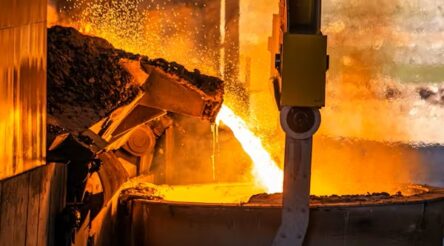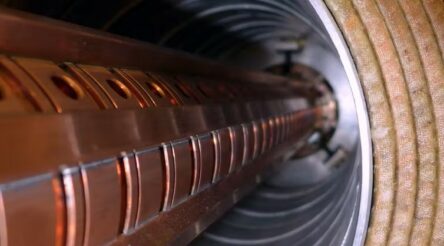Defence industry AUKUS essentials – by Michael Slattery

The UK government has awarded £3.95 billion to BAE Systems to further design and engineer the UK’s and potentially Australia's next-generation nuclear-powered attack submarine, SSN-AUKUS. With critical decisions being made on sourcing Michael Slattery looks at the difficulties faced by Australian industry to have a meaningful role in the programme.
The latest AUKUS contract for BAE Systems follows earlier announcements in March, when it was confirmed that Rolls-Royce Submarines would provide all the nuclear reactor power plants for the UK, and likely Australia's future nuclear submarine fleets.
In June they also announced that they would double their facility in Derby, UK and UK submarine sustainment giant Babcock International signed a five year deal with the UK Ministry of Defence to work on the SSN-AUKUS design.
Huntington Ingalls Industries seems to be the most forward leaning US defense industry prime and seems ready to integrate into the Australian market following its proposed collaboration with Babcock to provide critical capability requirements, especially around infrastructure and bases to support initially the Virginia Class and then to position for SSN-AUKUS when they arrive in the 2040s.
In Australia the imperative is to prepare to build these submarines and in the interim we need to build the infrastructure to do so and to accept the Virginia Class submarines that will be stationed here.
Australian Naval Infrastructure began, then paused construction of a new submarine construction yard at the Osborne Naval Shipyard in Adelaide (pictured) for the now cancelled Attack class submarine programme. This site will be developed to build the new SSN-AUKUS.
For Australian companies to key a look-in to future submarine however, we need to prepare a workforce, we need to educate, skill, train, and certify people.
We need to sponsor and support their security clearances and most important of all to employ them through those processes.
This does not happen without intent – this will not be solved through immigration, and it will not be solved if companies cannot meet the needs of the minimum defence sector requirements.
Further, intending businesses need meaningful work orders to support the training needed to support the enterprise.
Skilled welders certified to fabricate submarines take five years of ‘one on one' full time training and development.
We have 10 years to develop our people and the federal government must support those Australian businesses intending to be involved in the build-up.
Whilst the submarine enterprise is Pillar 1 of AUKUS, the now completed Defence Strategic Review is critical to this.
Business activity needs to be considered as part of the governments assessment and decision making.
So, what are the minimum requirements that Australian companies need to achieve to secure future submarine business?
They need to:
* Be financially stable.
* Have the highest Cyber Security protocols. (refer DISP)
* Have a diversified customer base across various sectors.
* Develop a team of skilled and accomplished personnel.
* Have their quality credentials in place.
* Have appropriate insurances.
* Have high tolerance manufacturing equipment.
* Have the ability to measure what you make.
* Have good governance with integrated MRP systems.
* Have a structured training process.
* Have social integrity (Indigenous, gender equality)
* Have a well-constructed hierarchical structure.
* Have a process to monitor your supply chain and be prepared to guide them.
* Have a supply chain that is prepared to be guided.
* Integrate, network and connect with the primes, Tier 1 & Teir 2 suppliers and other defence industry subcontractors.
* Attend exhibitions and events both locally and abroad.
* Have an ability to build relationships.
* Be able to answer tenders correctly (answer the questions, separate alternative responses)
* Be able to attract staff.
* Be tolerant.
It is quite a list and all of the above takes commitment, it takes patience, and it takes a great deal of resources away from day to day operations, especially for Australia's predominantly SME manufacturers.
Ultimately though it requires funding.
Our government needs to step in, understand the costs that industry will need for mutual ROI and support them to prepare our people.
The Albanese Government needs to help underwrite and finance our ultimate ability to develop our sovereign industrial capability.
Foot Note: The DISP approval process is held up due to probity issues, this is affecting those companies that are mid-stream in the approval process and affecting their ability to trade.
A resolution is required urgently, 18 months is too long.
The author is principal of consultancy Michael Slattery Consultancy Pty Ltd. He provides BDM services in the defence industry, advanced manufacturing, medical, mining, energy and renewables sectors. Michael is the immediate Past President of AIDN SA, and his comments are his own.
Further reading:
UK awards £3.95bn for next phase development of AUKUS N-submarine
Players line up for AUKUS as Huntington Ingalls bets on Australia
Picture: Picture: Australian Naval Infrastructure/The partially completed submarine construction yard at Osborne, Adelaide
@aumanufacturing Sections
Analysis and Commentary Awards casino reviews Defence Gambling Manufacturing News Online Casino Podcast Technology Videos





